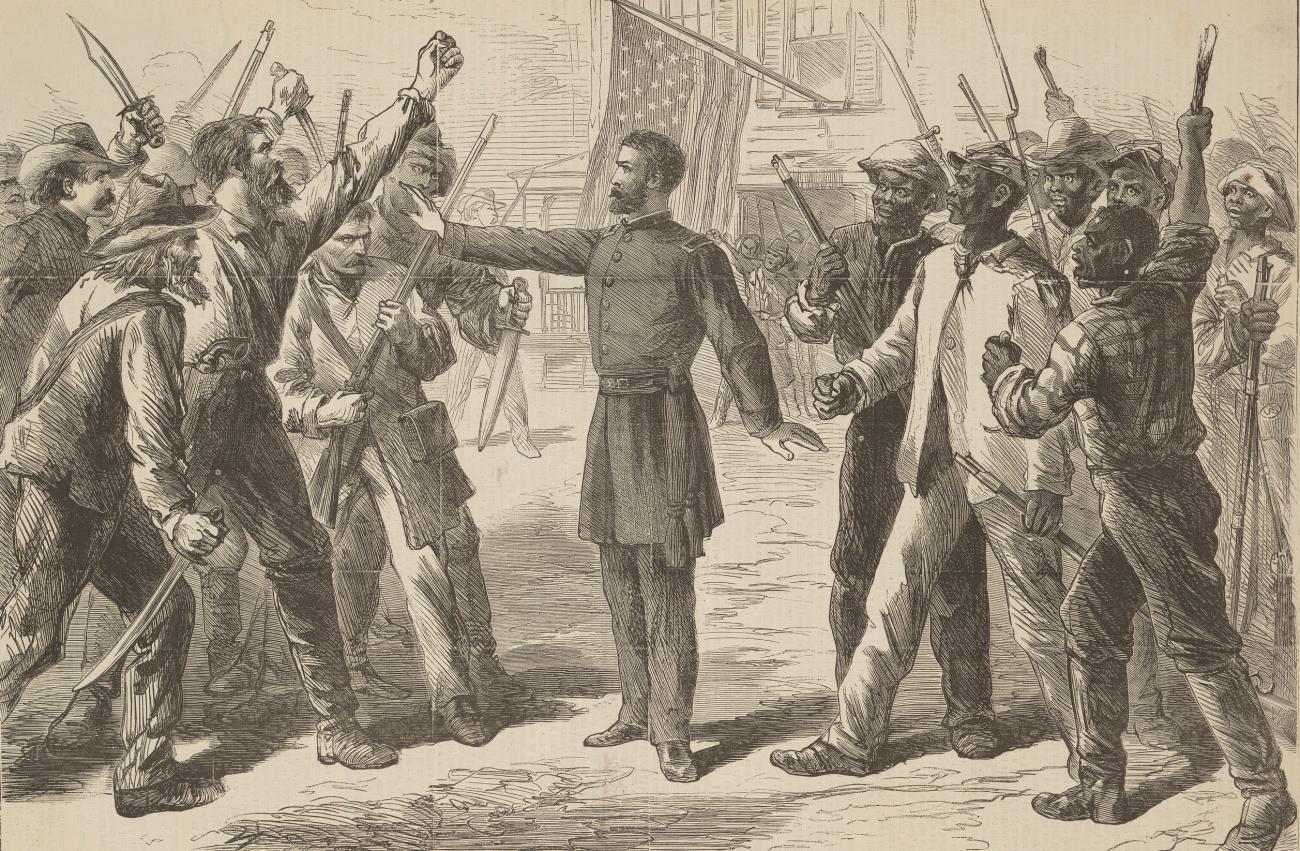Humanity and the Deception of Freedom
In today’s world, one of the greatest deceptions being played upon humanity, which has veiled its intellect, is the notion of freedom. This deception is so significant that there has never been a greater one in human history.
What is Freedom?
Freedom lacks a definitive definition, but in simple terms, it is the acquisition of fundamental rights while adhering to certain rules and laws. These fundamental rights include the freedom to live, think, express thoughts, act, write, speak, read, listen, dress, and consume.
Types of Freedom
Personal Freedom:
Personal freedom encompasses all those thoughts and actions related to an individual’s personal being, such as what they think about themselves, what they want to eat, drink, and wear.
Social Freedom:
Social freedom refers to the liberties of thought and action that a person enjoys as a positive member of society.
Now the question arises: who decides the boundaries of personal and social freedom? In the beginning, this responsibility was fulfilled by religion, and it still is. Religion, being subject to a supreme unseen power, conveys all its directives to humans through its representatives or religious figures. In the modern concept of the state, this responsibility has shifted to the government.
Previously, religious people bore this responsibility, and now state representatives do. In simple words, humans were and still are subjugated by other humans, either in the name of religion or the state. Either religion or the state defines the boundaries of human freedom. If this is a fact, how can a person be considered free?
An Example:
In all religions, pork and alcohol are forbidden, but all secular states leave the decision to consume these items to individuals. During the COVID-19 pandemic, states imposed restrictions like lockdowns, travel bans, and social distancing, which affected fundamental human rights, yet people accepted these restrictions. This implies that the determination of right and wrong for humans is actually made by someone else.
Another Perspective:
Consider the issue of LGBTQ rights. A few decades ago, both religion and secular states agreed that it was wrong for humanity. As LGBTQ individuals gained power, they changed the laws. Now, millions of people in those same societies protest that their children are being taught wrong things. This shows that powerful people decide what to teach, which influences thinking. The fashion industry is another example of how thoughts and dressing are controlled.
I am well aware that humans are social animals and cannot live without society. However, to what extent can religion provide freedom and to what extent does the state impose restrictions? We will discuss examples of freedom in Islam in the light of the Quran and Hadith, and state restrictions with references to American laws to make this article more comprehensive. We will also explore how humans enslave other humans, how large corporations and capitalism have enslaved people, and how Islam liberates humans from human bondage, making them servants of Allah. Finally, we will draw conclusions considering all aspects.
Historical Concept and History of Slavery in Humanity
Early Period of Slavery:
Slavery is an ancient concept that has existed in various civilizations and societies throughout human history. In ancient Egypt, Babylon, Greece, and Rome, slavery was an integral part of the social system. Slavery served purposes of labor, exploitation of war prisoners, and maintaining social differences.
Middle Ages:
In the Middle Ages, slavery took on new forms. In the Islamic world, slavery existed but with different laws and regulations. Islam protected the rights of slaves and encouraged their emancipation. In Europe, especially during the medieval period, various forms of slavery and serfdom existed.
Colonial Era:
The colonial era had a profound impact on global slavery. The trade of African slaves transformed the world’s economy and promoted triangular trade between America, Europe, and Africa. During this period, millions of Africans were enslaved and forced to work under inhumane conditions.
What is Freedom? Views of Different Philosophers
John Locke:
John Locke, a renowned political philosopher, includes freedom among fundamental human rights. According to him, every person has the right to life, liberty, and property. He believed that the purpose of government is to protect these rights.
Jean-Jacques Rousseau:
In his book “The Social Contract,” Jean-Jacques Rousseau stated that freedom means individuals making their own decisions, but those decisions should be in the interest of society. He said that man is born free but everywhere he is in chains.
Immanuel Kant:
Immanuel Kant’s philosophy of freedom is based on reason. According to him, every person should have autonomy to make their moral decisions. He stated that freedom means every person should be allowed to act on their moral principles.
Thomas Hobbes:
Thomas Hobbes believed that freedom means every person has the right to protect their life according to their will. In his view, humans are inherently selfish, and they have freedom as long as they respect the rights of others.
Various Movements and Struggles for Freedom
American Independence Movement:
The American Revolution (1775-1783) liberated America from British colonialism. This movement was based on the principles of freedom and democracy and influenced freedom movements around the world.
French Revolution:
The French Revolution (1789-1799) ended monarchy in Europe and promoted the principles of democracy and human rights. The slogans of “Liberty, Equality, and Fraternity” influenced global freedom movements.
Movements to End Slavery:
In the nineteenth century, various countries started movements to abolish slavery. In the United States, slavery ended after the Civil War (1861-1865). In Britain, the law to abolish slavery was passed in 1833.
Colonial Freedom Movements:
In the twentieth century, Africa and Asia saw strong movements against colonial powers. In India, under the leadership of Mahatma Gandhi, a movement against British colonialism led to India’s independence in 1947.
Concept of Religion and Freedom in Religion
Religion and Freedom:
Different societies have defined the limits of freedom based on religion. The purpose of religion is to provide moral and spiritual guidelines that teach humans the distinction between right and wrong.
Freedom in Islam:
Islam grants humans various types of freedoms, including personal, social, political, economic, and religious freedoms.
Freedom in the Light of the Quran:
- Personal Freedom: The Quran says, “And do not kill yourselves [or one another]. Indeed, Allah is to you ever Merciful.” (Surah An-Nisa: 29)
- Religious Freedom: The Quran says, “There shall be no compulsion in [acceptance of] the religion.” (Surah Al-Baqarah: 256)
Freedom in the Light of Hadith:
- The Prophet Muhammad (PBUH) said, “The best of you is he who is best to his family.” (Tirmidhi)
- The Prophet Muhammad (PBUH) said, “All humans are the servants of Allah and no one is the slave of another.” (Bukhari)
Concept of Slavery in Capitalism and Socialism
Capitalism:
In capitalism, large corporations and financial institutions control every aspect of human life. In matters of employment, income, and expenses, humans become subjugated to the capitalist system.
Socialism:
Socialism has also failed to free humans from economic slavery. In socialist states, complete government control and intervention limited individual freedoms.
True Concept of Freedom in the Light of the Quran and Hadith
Freedom in Islam:
Islam liberates humans from human bondage and makes them servants of Allah. The purpose of Islam is to free humans both spiritually and physically.
True Freedom in the Light of the Quran:
- The Quran says, “And Allah is the best of providers.” (Surah Al-Jumu’ah: 11)
- The Quran says, “We have certainly created man in the best of stature.” (Surah At-Tin: 4)
True Freedom in the Light of Hadith:
- The Prophet Muhammad (PBUH) said, “True wealth is the wealth of the soul.” (Muslim)
- The Prophet Muhammad (PBUH) said, “The best jihad is to fight one’s own self.” (Tirmidhi)
Conclusion
This analysis reveals that the concept of freedom is indeed a complex matter. Different religions and states define the boundaries of freedom according to their own limits. Powerful individuals and the capitalist system also influence the boundaries of freedom. Islam provides true freedom by making humans servants of Allah, freeing them from human bondage.
References:
- John Locke, “Political Philosophy,” 1689.
- Jean-Jacques Rousseau, “The Social Contract,” 1762.
- Immanuel Kant, “Philosophy of Freedom,” 1785.
- Thomas Hobbes, “Leviathan,” 1651.
- Various religious scriptures such as the Quran, Bible, and Torah.
- Sahih Bukhari and Sahih Muslim: Authentic Hadith collections.
- The American Constitution, First Amendment.









